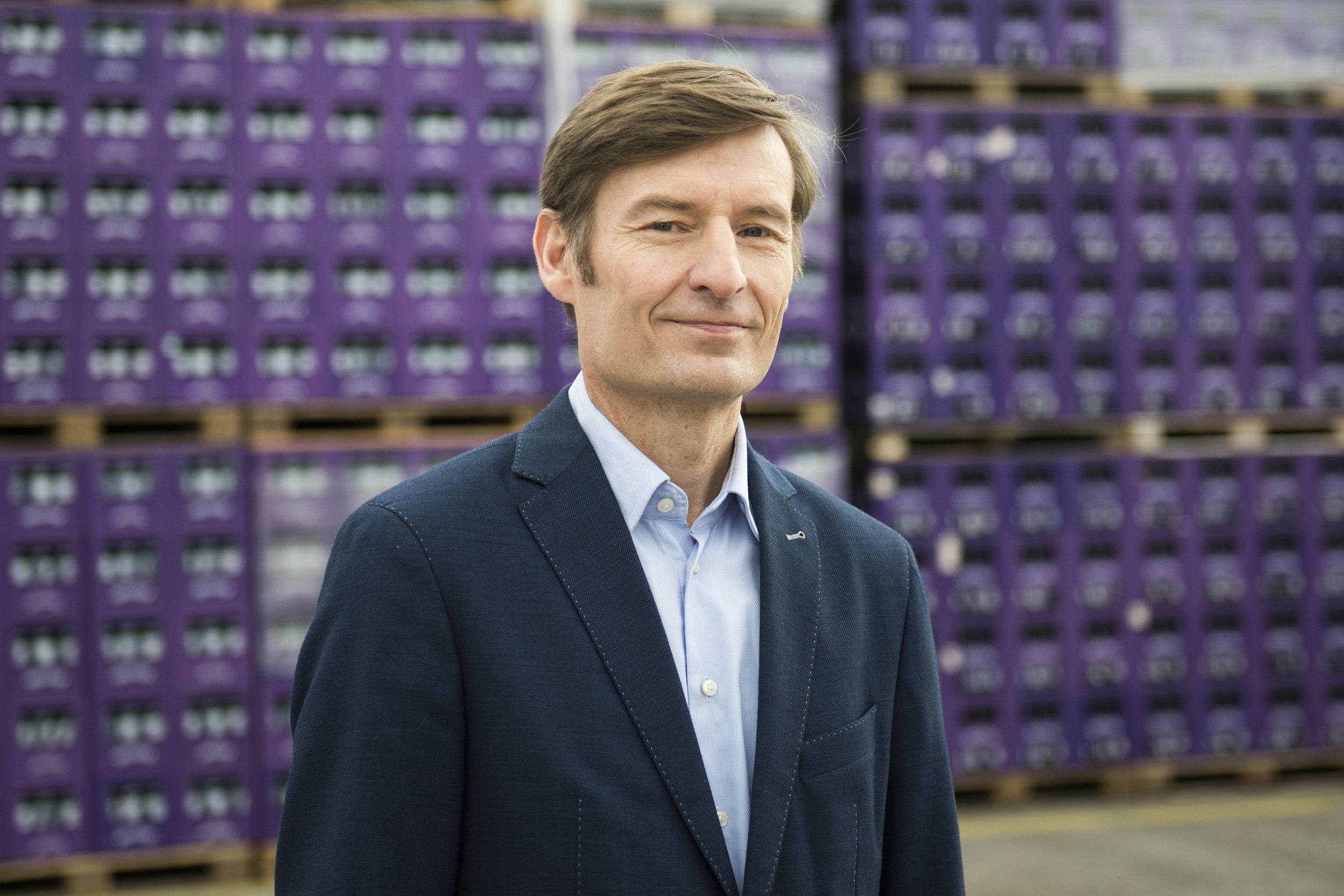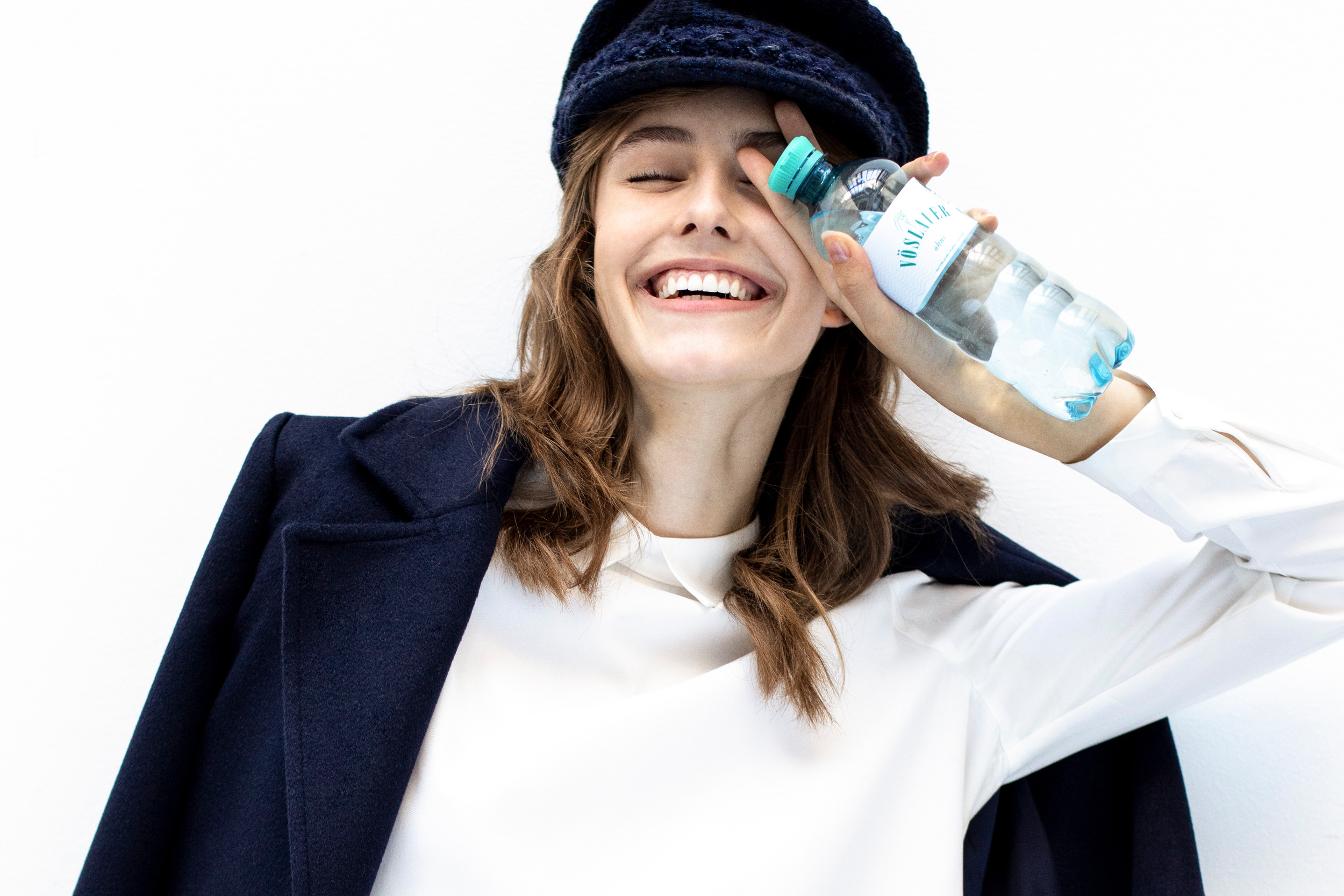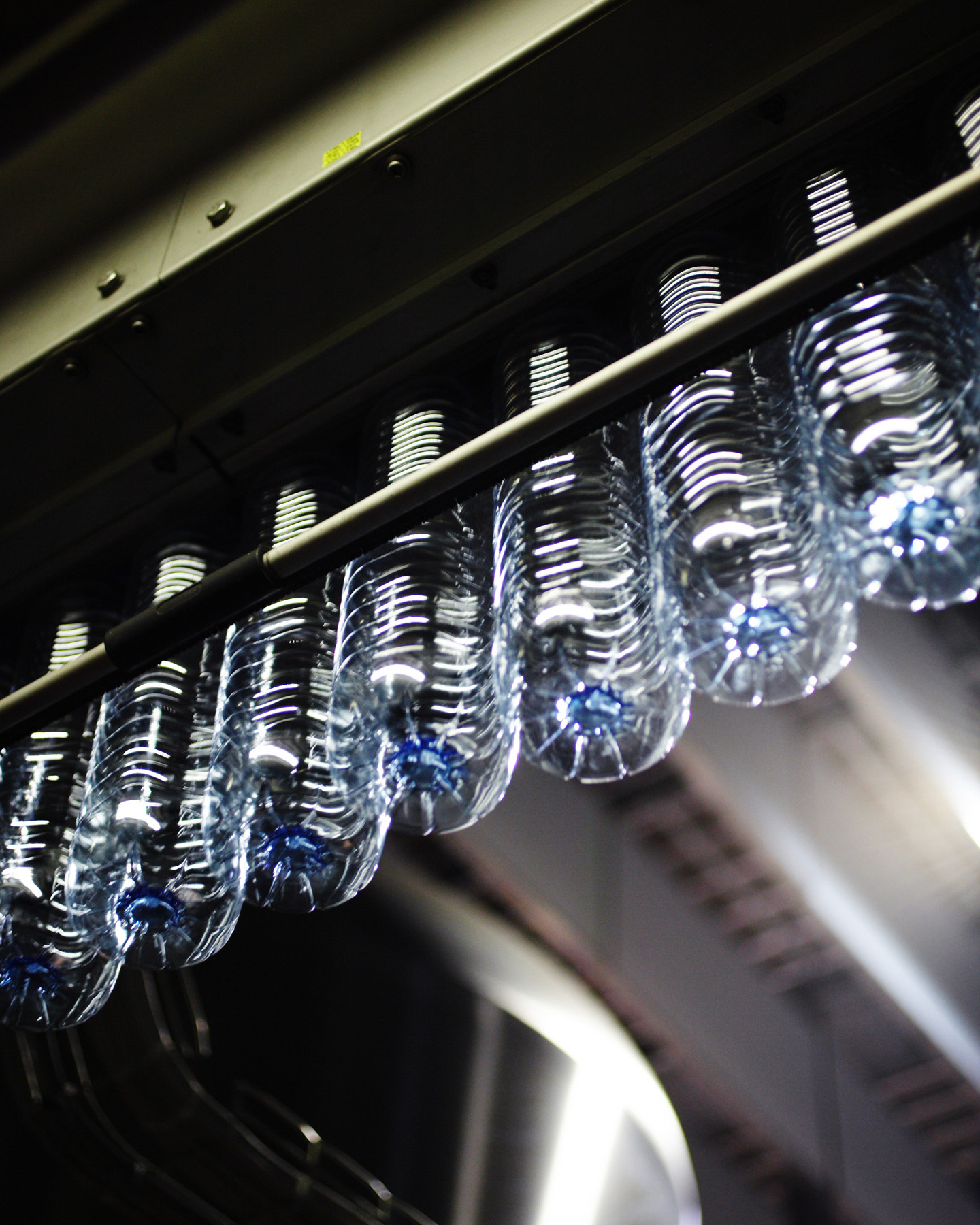for future generations
Vöslauer Managing Director Herbert Schlossnikl on sustainability, efficient management and consultants.

We at Vöslauer always handle our spring water very carefully. We’re permitted to withdraw much more than we currently do, but we see it as our responsibility to use this natural and valuable treasure responsibly and protect it for future generations. We only extract the quantity of water that actually gets bottled.
Not really, but in Austria we have little in the way of growth potential, and the limiting factor is not the source, but rather the market. Vöslauer has a very nice market share of over 40 percent in Austria. Every additional percent we gain in Austria is relatively expensive, especially when the water market isn’t growing.
For us, Germany is one of our most important export markets; our export ratio is currently around 18 percent. Our aim is to increase our market share, because we see great potential.
What we certainly do not want is to export our water to Taiwan or Saudi Arabia, i.e. worldwide. That makes no sense from our inner motivation alone, and we are very much concerned with the issue of sustainability. But if we already deliver to Bludenz, Munich or Frankfurt it makes sense. Moreover, the Germans are very similar to us.
The subject is of enormous concern to us. After more than a decade, the discussion concerning packaging is a little bit in a state of upheaval and reusable containers have regained ground. But in my opinion, the discussion about plastics is not being conducted properly. In terms of the eco-balance, our rePET bottle is on a par or even slightly better than the refillable glass bottle.
For me, our rePET bottle is clearly the favourite: here, too, the recycling cycle is 100 percent closed, albeit in a different way than with glass. The hygiene factor is better, and in addition the material usage, the production process, and the packaging density of rePET bottles make more economic sense. The additional internal logistical effort that we have to make for glass bottles alone is enormous.
That processes are scrutinized critically and continually and meaningful improvements and solutions are offered. At Vöslauer we have shortened reaction times to problems, especially in the production area. Here and there, there were small, but also more significant defects in equipment, which caused delays. Together with Syngroup we developed a system and a structure that has significantly improved our reaction time to operational problems. To illustrate this, there is a complete overhaul of all plants once a year, during which all wear parts are replaced. And since we sell twice as much water in summer than in winter, we need the shortest possible reaction times during this period if there be a problem somewhere.

For example, by increasing the efficiency of work preparation for audits and in the organisation of this process, Syngroup has synchronised everything perfectly and optimised procedures. The fact that all wearing parts were available when needed and could be replaced immediately also significantly improved our situation. None of the filling lines had to be dismantled to make any improvements. And what also speaks in favour of Syngroup, and where the wheat is separated from the chaff: the improvements are sustainable. These are not flashlights that work only for a few months and then it’s over again. Syngroup has given us tools and instruments that still work years later.
We are constantly developing and always paying attention to the needs of our consumers. This applies not only to our products but also to the issue of sustainability – here we have set ourselves ambitious goals for 2025. In addition, we commissioned a new glass plant in spring 2019 to further expand our reusable product range. And there are other major projects we have planned for 2020.
Of course we have to ask ourselves, what makes sense for us? Currently, we help our technicians in the area of maintenance and remote maintenance with our own VR glasses. This saves us travel time, for example. There are also solutions in the area of logistics and pallet loading.
Of course it is a challenge to balance complexity and efficiency. I think we are so well positioned that volume and our product range can be managed well.
We are very much driven by our marketing and sales activities and are on the road at conferences and events. So we try to apply trends to our industry and look very closely at international hotspots. Berlin, for example, is really busy at the moment. And when we analyse these developments, we look at which ones could fit Vöslauer.

-
Established1936
-
Staff211
-
Turnover 2018102,96 Mio. EUR
-
Export ratio 201817,7%
-
DivisionBottling and distribution of Vöslauer Natural Mineral Water, Vöslauer Flavour, Vöslauer Balance, Vöslauer biolimo and the licensed brands Almdudler, Pepsi Cola and Seven up
-
The Company
The company was founded in 1936 by the Zentralsparkasse as Vöslauer Heilquellenverwertungsgesellschaft. The economic basis of Vöslauer Mineral Water is the spring – the origin. Located more than 660 meters below sea level it has been a bubbling artesian source for 15,000 years and it is the basis of all products and concepts. Vöslauer takes responsibility that comes with it very seriously because the spring is an important part of the company’s history. The company headquarters in Bad Vöslau and the thermal spa as the centre of the town represent an inseparable bond with the region.
For Vöslauer, sustainable, resource-saving production is an important corporate responsibility. In 2018 the company therefore launched the first bottle made of 100% rePET (recycled PET) and thus made an exemplary contribution to the recycling economy. By consistently focusing on customer needs, Vöslauer is also a trendsetter and innovation leader in the refillable glass sector. In the summer of 2019 the first 0.5 l refillable glass mineral water bottle was launched in Austria. The credo is: Each product should be more sustainable than its predecessor. Because for Vöslauer sustainability is an essential part of the company’s philosophy and strategy. Thus, consistent goals were defined for 2025: Each Vöslauer bottle is made of 100% recycled material and the company will be 100% CO2 neutral.